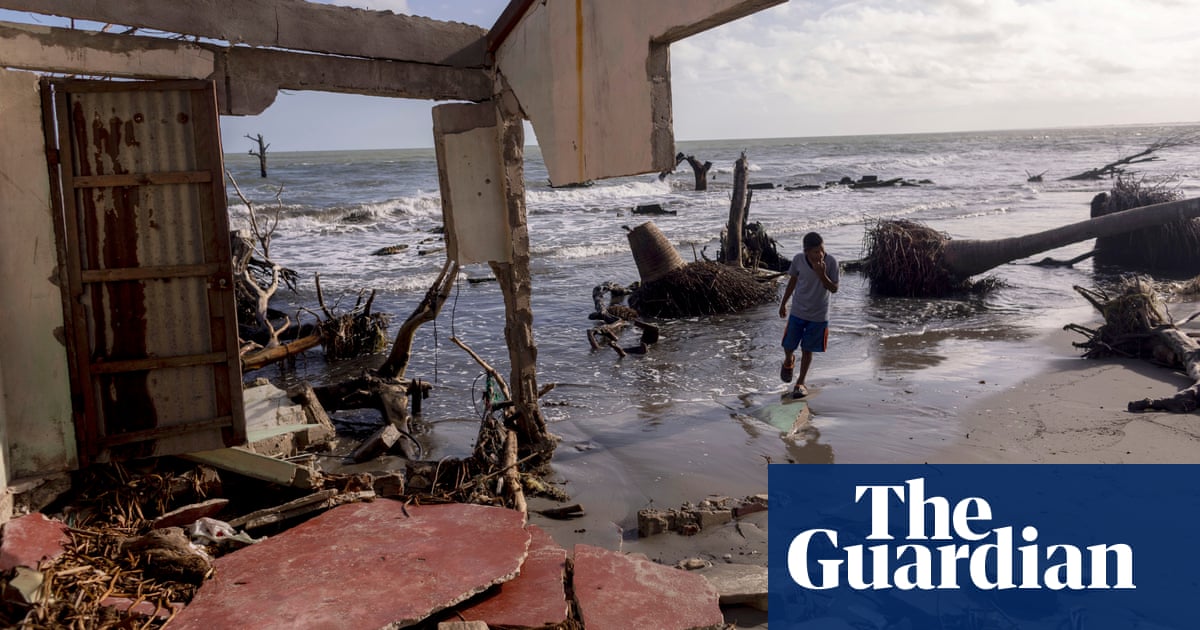
n Saturday the UK, UN and France will co-host the climate ambition summit alongside partners Italy and Chile, on the fifth anniversary of the UN’s landmark Paris agreement. The summit brings together the world’s most ambitious climate leaders from government, business and civil society, all seeking to ramp up action and ensure the Paris agreement is delivered.
Covid-19 has not stopped the climate crisis. Our world continues to get hotter. The effects of climate change are already being felt in droughts, floods and other extreme weather events around the world. But there are reasons to be positive.
First, we have come a long way in a short time. Since the concept of net zero was agreed in Paris, at least 120 countries have made net zero or carbon neutral commitments. Now we need to see these long-term goals turned into implementation plans, near term targets and decisive actions to shift away from coal. This is what the consultancy Systemiq have called the Paris “ratchet” effect.
The UK was the first major economy in the world to pass laws to bring all greenhouse gas emissions to net zero by 2050, and we now have a plan of actions to get us there, including a reduction of at least 68% in greenhouse gas emissions by the end of the decade, compared to 1990 levels. We will keep working with our partners around the world to build the momentum on emissions cutting, climate finance and adaptation and resilience.
The second reason to be positive is that some of the big net-zero dominoes are beginning to fall. In September, president Xi Jinping announced that China would achieve carbon neutrality before 2060. In October, prime minister Yoshihide Suga declared that Japan would reach net zero before 2050. A few days later, president Moon Jae-in announced that South Korea would achieve net zero by 2050. US president-elect Joe Biden’s pledge to recommit to the Paris agreement and achieve a “carbon pollution-free power sector by 2035” is a game-changer.
We are using our diplomatic reach and clout to keep pushing at the dominoes, encouraging our partners around the world to be as ambitious as they can.
The third reason is that the economics of the low-carbon transition are changing. Renewables are finally undercutting fossil fuels as the cheapest and most secure form of energy. Countries want to position themselves at the forefront of the technological revolution. Business already gets it. Companies that have set their own net-zero targets now have a combined global revenue of over $11.4tn. The stars are aligning for decisive action.
We know how important it is to act. The world is changing around us, and we must adapt to it. Many countries are already doing this, tackling head-on the new reality we face as a result of climate change. In Bangladesh, for example, with the support of the UK and others on disaster risk reduction, the mortality rate from cyclones has been cut more than a hundredfold – from 500,000 deaths in 1970 to 4,234 in 2007.
So let’s seize this moment. I’m sure today’s summit will deliver the boost we need as we enter the crucial year ahead – which culminates with the UK hosting the UN climate change conference in Glasgow next November. We are determined to keep raising ambitions around the world in the fight against climate change, and to go further and faster in 2021.
• Dominic Raab is foreign secretary and first secretary of state, and the Conservative MP for Esher and Walton












